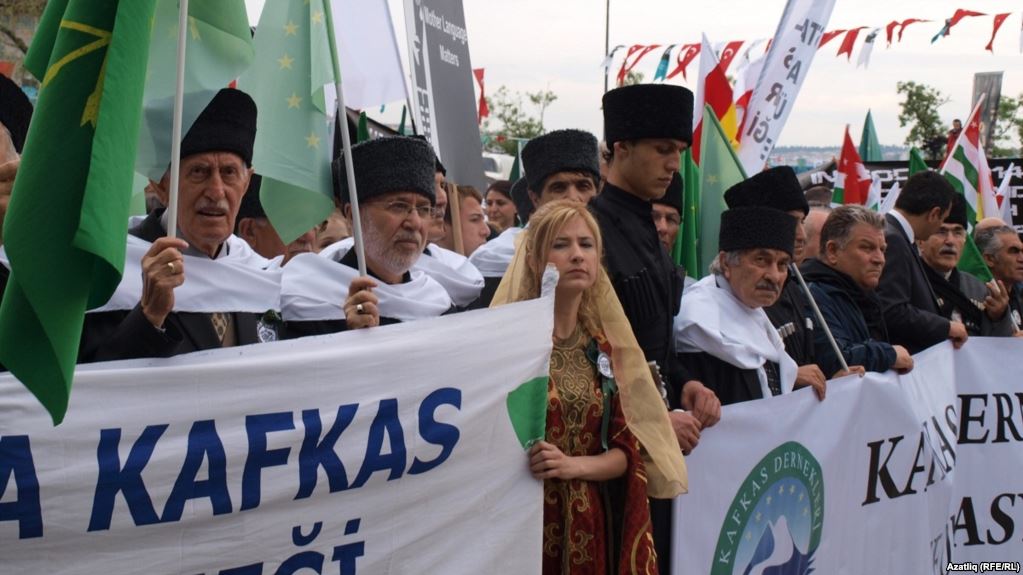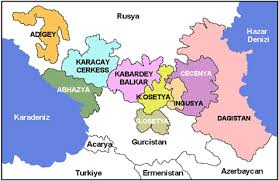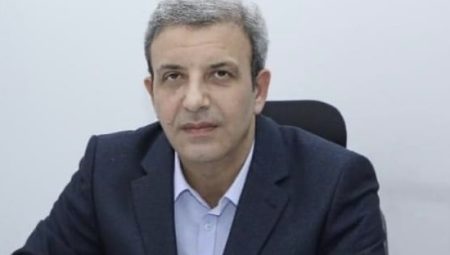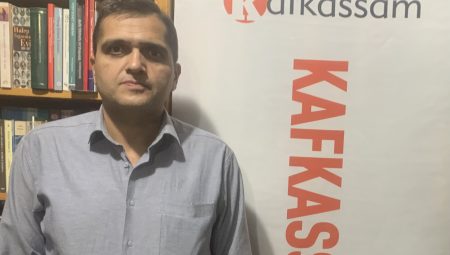The Circassian national movement in the North Caucasus as well as in the diaspora is on the rise. In part, this trend is powered by new activism among Circassian young people, who, reports show, are increasingly turning away from an Islamic to an ethno-national identity. Additionally, they and their elders are driven toward greater activism by anger at Moscow’s refusal to allow Circassians to return to their homeland from war-torn Syria. And all this is unfolding precisely at a time that Moscow—fearing protests, given the worsening economic situation in advance of the Russian presidential elections—seeks to suppress the Circassian movement by targeting its activists for detentions, arrests and heavy fines. That sets the stage for a serious collision between a newly aroused nation and an increasingly repressive Russian government. This struggle is playing out in many of the republics and regions of the North Caucasus where Circassians live, forcing local officials there to choose between loyalty to Moscow and support from one of the most active segments of their own populations. In some cases, it even requires the central Russian government to send in its own forces to ensure that there is no linkup between the Circassian national movement and republican authorities. Such a development, were it to occur, could further undermine Russia’s control of the region.
Perhaps the primary trigger for the rise of Circassian nationalism, its participants say, is the same one powering dissent and demonstrations in Russia more generally: the increasing role of young people in a national movement that historically had been dominated by older Circassians. These young Circassians are not only choosing to use their own national language more often than their elders were (Yuga.ru, June 14) but also, in the words of Islam Tekushev, who tracks the Circassian issue for the Caucasus Times, “changing the Circassian movement by giving it a new dynamism” (Caucasus Times, May 21).
The increasing role of the young and their reliance on social media, which keep them in close contact with centers of the five-million-strong Circassian diaspora abroad, have undermined the Kremlin’s earlier strategy of trying to limit contacts between the Circassians in the North Caucasus homeland and those abroad. And that failure, in turn, has led Moscow to adopt a new strategy of trying to combat the rise of Circassian nationalism within the Russian Federation by targeting activists inside the country. That strategy has involved a mounting introduction of Russian siloviki (security services personnel) into Circassian areas, the arrest and fining of activists, and high-profile court cases. But despite Moscow’s hopes, all these have only served to mobilize the Circassian nation further (Caucasus Times, June 14).
In a June 14 article for Caucasus Times, Tekushev documents how Russian troops have been present at all Circassian public meetings in the North Caucasus, an implicit threat to the Circassians and to regional and republican officials. He also notes how the authorities have arrested, tried and fined ever more activists, not only around the key date of May 21, when Circassians remember the deportation and mass killing of their people by tsarist officers in 1864, but also at other public events as well.
Perhaps the most serious of these recent cases was the arrest of Ruslan Gvashev, a Shapsug activist in Sochi, at this year’s May 21 anniversary. He was found guilty of organizing an unsanctioned meeting and fined 10,000 rubles ($200) after being kept in jail for eight days. He refused to admit guilt and turned to the Kabardino-Balkarian Human Rights Defense Center for help in appealing his case (Ekho Kavkaza, June 12). Not only did this attract more attention among Circassians to what Russia is doing, but it highlighted the growing cooperation among Circassians who live in various regions and republics that were created by the Soviet authorities specifically to divide them up and thus make it easier for Moscow to rule them.
Valery Khatazhukov, the head of the Human Rights Defense Center, pointed out that the move against Gvashev was “the first case when the memorial measures that have become traditional” were held to be criminal because they did not enjoy the advance approval of the authorities. Elsewhere in the North Caucasus on that date, some officials gave their approval while others did not, leading to arrests and fines and, likely, official behind-the-scenes pressure from Moscow on local authorities. That pattern suggests that there will be more clashes in the future between Circassians and the Russian authorities, with regional and republican elites caught in between (Ekho Kavkaza, June 12).
Until recently, the post-Soviet Circassian movement had been powered by Georgia’s recognition of the tragic 1864 events as a “genocide” and by the holding of the 2014 Olympics in Sochi, on what Circassians view as sacred land. But now, two new factors are clearly at work: the refusal of the Russian government to allow Circassians to come back to their homeland from Syria, a violation of human rights and even Russian law, as well as the increasing participation of Internet-savvy young people in the movement, something Moscow has not figured out how to block or redirect.
And in what may be the ultimate irony, Moscow’s desire that young North Caucasians turn away from religion means—among the Circassians at least—that ever more of them are turning to nationalism. This will likely prove even more difficult for the Russians to cope with, thus setting the stage for a new clash between Moscow and the renewed and more youthful Circassian nation.
Paul Goble





